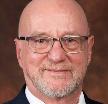Hanekom: SA paying heavy price for new visa rules
Cape Town - South Africa paid a heavy price for implementing the new visa regulations, Minister of Tourism Derek Hanekom said on Thursday.
"I realise the intention of these new regulations was good, but most human trafficking happens inside a country or by means of illegal crossing of borders," he said at the annual global convention of the International Gay & Lesbian Travel Association (IGLTA) taking place in Cape Town this week.
Due to increasing international terror attacks, Hanekom said it is hardly surprising that countries are reacting.
"The question is what needs to be done in SA if we want to protect our citizens. The reality is that criminals' papers are often impeccable and you won't pick them up by means of their passports. They also often cross borders illegally," he explained.
He added that SA is en route to using e-visas and he is pleased with the positive impact it has had on the local tourism industry after the requirement of having to apply for SA visas in person, was changed. He is especially pleased with the positive impact this change has had on the Chinese tourism market. The number of Chinese tourists visiting SA in January 2016, for instance, was about 16% more than in January 2015.
"We are now in regular dialogue with our sister Department of Home Affairs as it is very important for the tourism industry to create easy access," said Hanekom.
He added that as far as changing the requirement of an unabridged birth certificate for minors under 18 who are travelling to or from SA is concerned, it is causing untold difficulties. The delay in any possible change is caused by the fact that it has to be changed on a regulatory basis and so far agreement on what this should involve has not been reached.
"Excessive rigidity is not helpful," said Hanekom.
Fin24
This article first appeared on News24 – see here.
![]()

